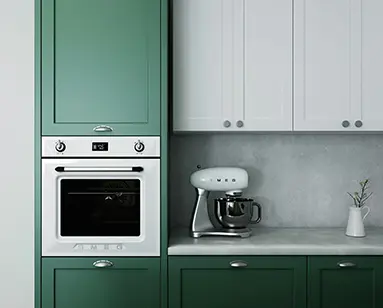The Evolution of Smart Home Devices: Transforming Modern Living
1. The Early Days of Smart Home Technology
The concept of home automation dates back several decades. In the 1970s, the first home automation system, X10, was introduced, allowing devices to communicate over electrical wiring. However, early smart home technology was limited in functionality and required specialized knowledge to operate.
2. The Rise of Wireless Connectivity
The advent of Wi-Fi and Bluetooth in the late 1990s and early 2000s revolutionized smart home devices. This shift enabled easier installation and broader accessibility, allowing homeowners to control devices using remotes and computers. Devices like wireless security cameras and programmable thermostats became more common.
3. The Smart Home Revolution (2010s-Present)
The past decade has seen an explosion in smart home technology. The integration of AI, IoT (Internet of Things), and voice assistants has taken home automation to new heights. Key advancements include:
- Voice-Controlled Assistants: With the launch of Amazon Alexa, Google Assistant, and Apple’s Siri, users can control their homes using voice commands.
- Smart Security Systems: Advanced security cameras, motion sensors, and smart locks provide enhanced home protection.
- Connected Appliances: From refrigerators that suggest recipes to washing machines that can be controlled remotely, smart appliances make daily tasks easier.
- Energy Efficiency: Smart thermostats, lighting systems, and energy monitoring devices help reduce power consumption and lower utility bills.

4. The Future of Smart Home Devices
As technology advances, smart home devices are becoming even more intelligent and interconnected. Future trends include:
- AI and Machine Learning: Devices will become more intuitive, learning user habits and making automated adjustments.
- 5G Connectivity: Faster, more reliable networks will enable seamless communication between devices.
- Interoperability: Standardized platforms will allow different brands and systems to work together effortlessly.
- Sustainability: More eco-friendly smart home devices will focus on energy conservation and sustainable living.
Conclusion
The evolution of smart home devices has transformed how we interact with our living spaces. From simple automation to intelligent ecosystems, these technologies continue to enhance comfort, security, and efficiency. As innovations in AI and IoT progress, smart homes will become even more intuitive, making daily life more convenient and sustainable.
Are you ready to upgrade your home with the latest smart devices? Explore Prilue’s cutting-edge smart home solutions today!








